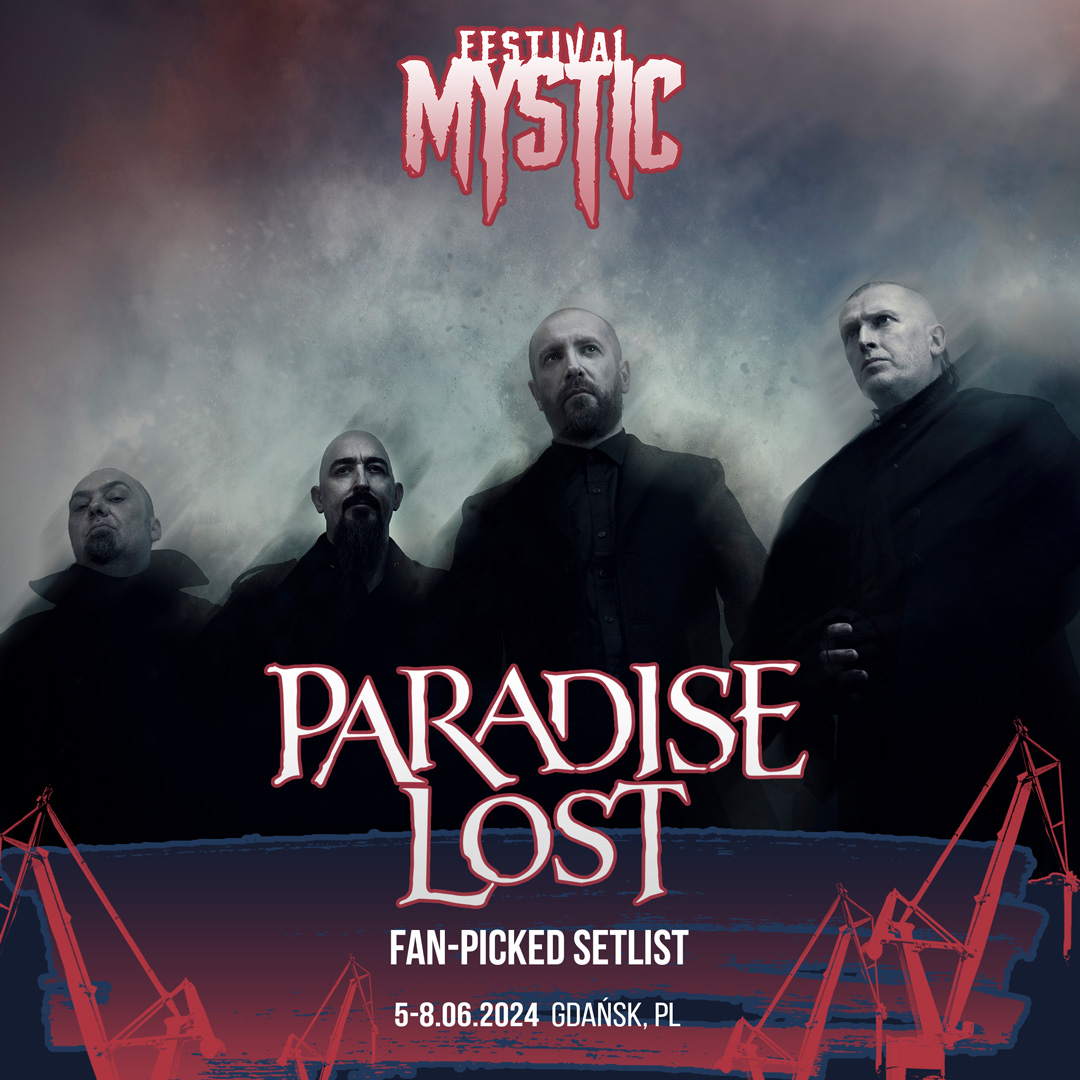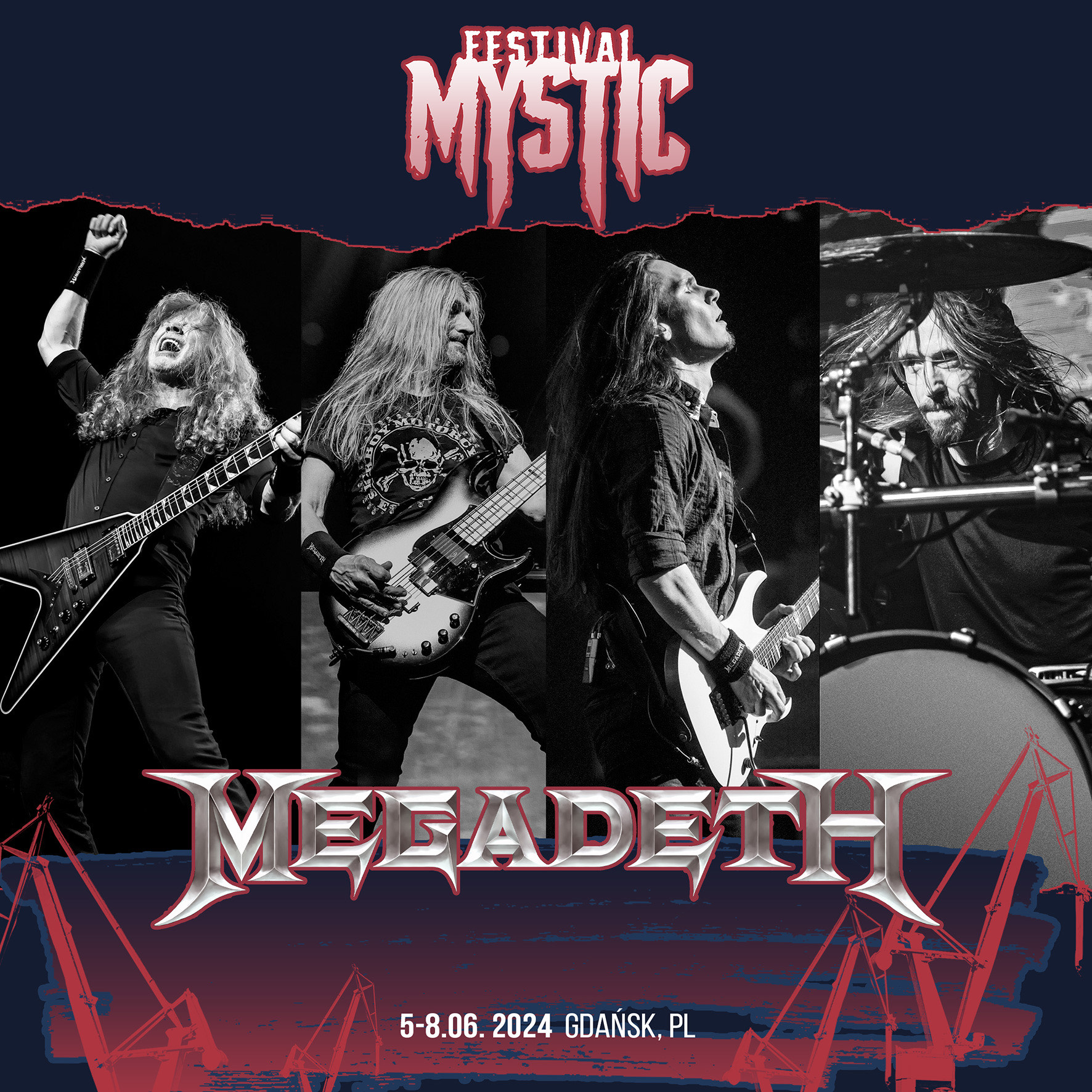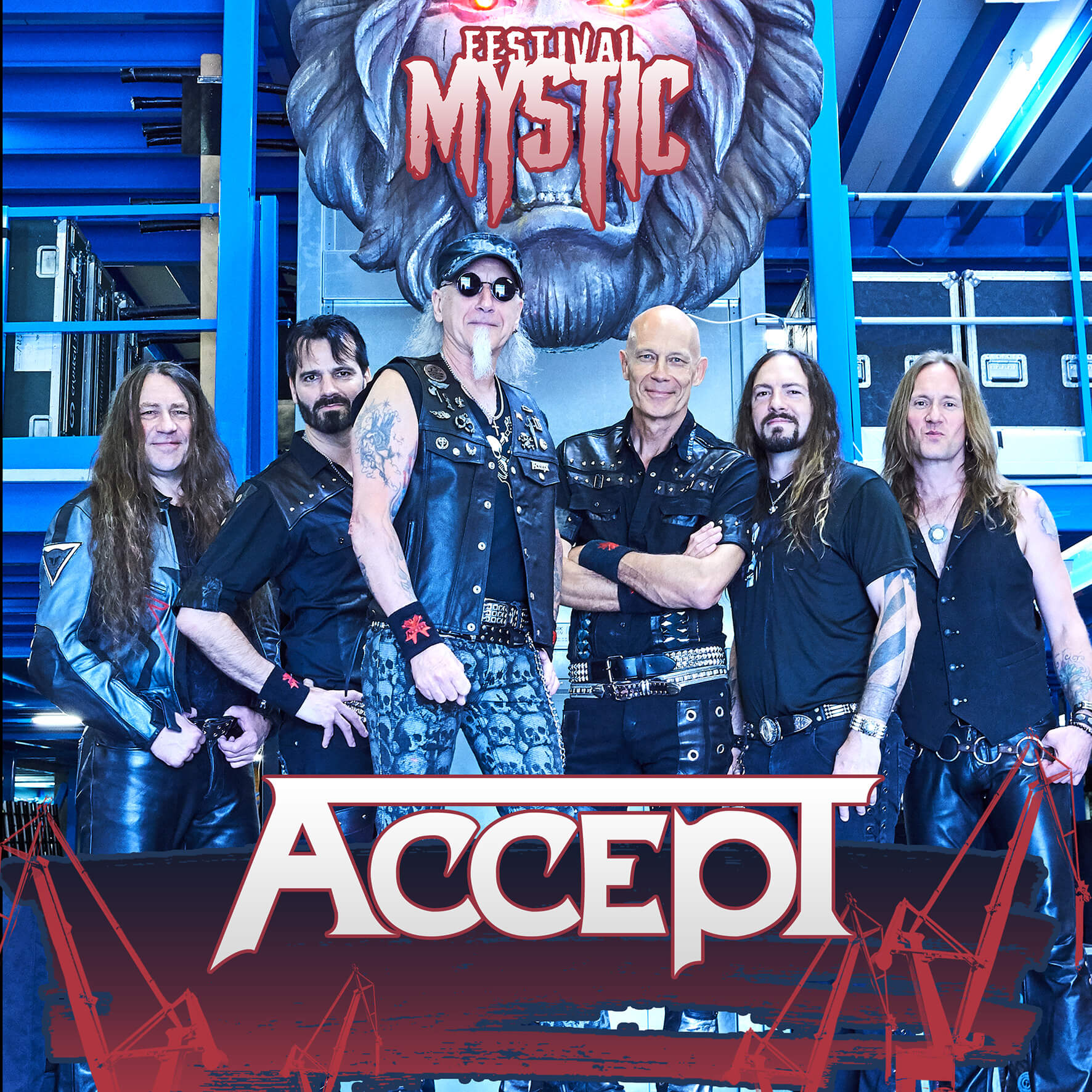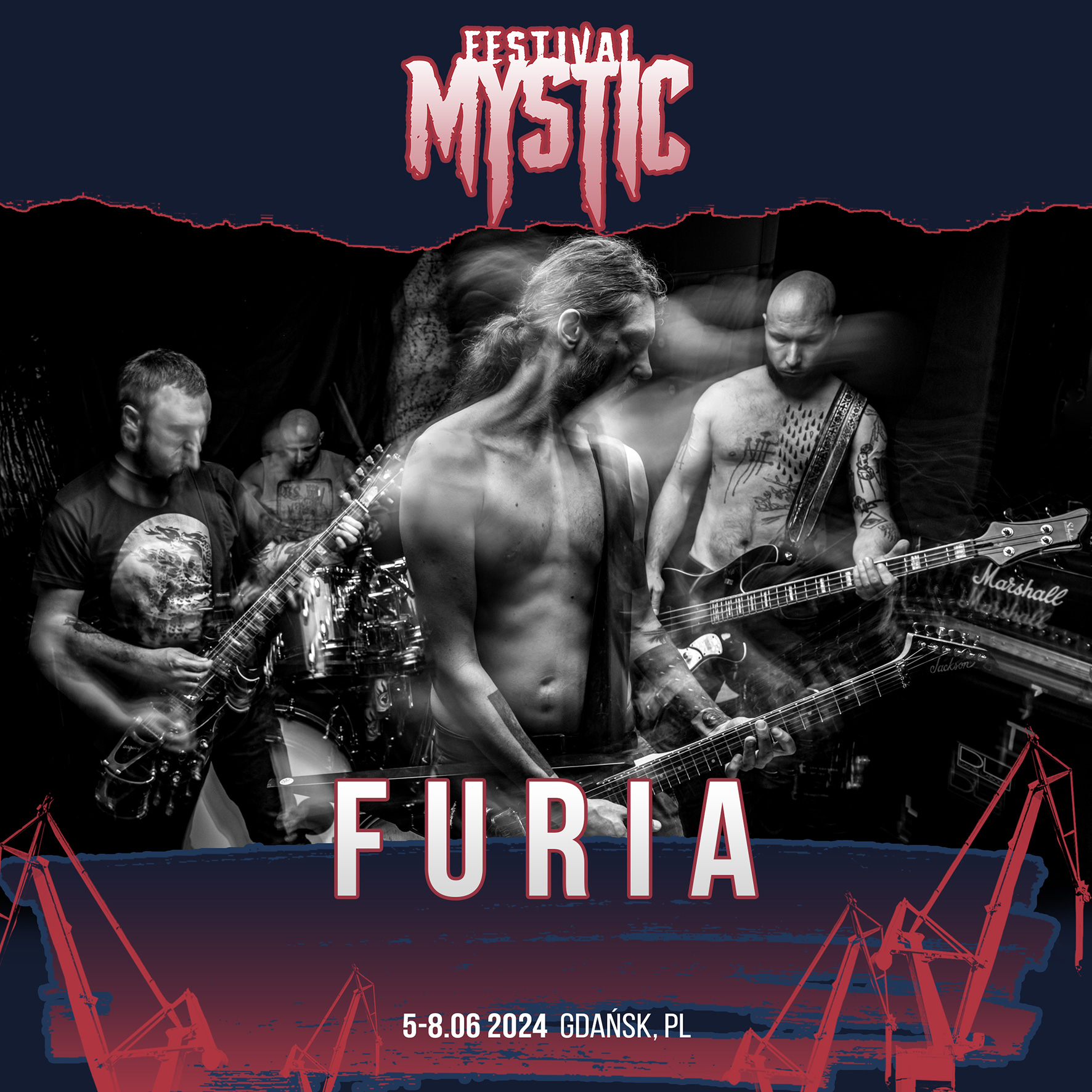- DAY: 07.06
- STAGE: Main Stage
- COUNTRY: UK
Having first flirted with the death-doom heaviness, with time they became the big stars of gothic metal and MTV, only to then swerve towards rock and end up exploring the nooks and crannies of gloomy synth-pop… That’s quite a journey and after some time, it brought Paradise Lost back home, where they slowly dug out and rediscovered their roots – a homecoming that the band is now all the better for. Hailing from Halifax, the Brits are the undisputed kings of atmospheric metal – which is probably why they keep coming back to us. And this time around, they’re coming to Mystic Festival with something special cooked up for their performance – they’ll play a fan-selected setlist. Don’t you dare miss it.
History:
Paradise Lost embarked on their adventure in 1988 in the town of Halifax when they were barely out of secondary school. The band’s original line-up consisted of Nick Holmes, Greg Mackintosh, Aaron Aedy, Stephen Edmondson, and Matt Archer. Archer kicked around with the band only for a couple of years – as will become a pattern for the musicians behind the band’s drum kit – but the remaining four have stuck together from the very beginning.
The band started out with a few demos, which, despite their makeshift character, were a complete novelty at the extreme scene. When all the other death metal bands on the block were speeding off the rails, the Brits turned up the doom stomping and injected it with the death metal putrescence. They continued in this direction with their debut album “Lost Paradise”, released in 1990. The record caused quite the stir in the European underground (though not solely there) and has since been cited as a source of inspiration by, among others, Autopsy’s Chris Reifert and Immolation’s Ross Dolan. The band, however, made hay while the sun shone and a year later, they returned with the ground-breaking “Gothic”. Though keeping with the death-doom gloominess, the material saw the band explore the pathways of gothic rock and post-punk. The album was revolutionary and sired a new genre – gothic metal. Despite all that, the band did not follow this path for their subsequent album. Released in 1992, Shades of God is classic doom metal with robust structures and sees Holms diverge from the typical growl. The record boosted the band’s popularity, but the best was yet to come. The 1993 “Icon”, still very much full of doom but brimming with hard rock and punchiness, launched the five friends straight into the arms of big clubs, big venues and… MTV’s permanent scheduling! It wouldn’t be an exaggeration to call them the bonafide rockstars of the Old Continent – and their status only grew when two years later, they released “Draconian Times”. The band’s fifth full-length record, which saw the band fully embrace the goth metal identity, was a hit straight out of the gate, selling around a million copies.
They wouldn’t be Paradise Lost, however, if they didn’t cock a snook at their fans. In 1997, they released One Second, a collection of songs that drew heavily from rock and pop, and almost immediately put some distance between them and the metal world. Despite performing well commercially, the record had a mixed reception, but the real rupture came later. In 1999, the band released into the world their most controversial record yet, Host – an album drenched in synth-pop and darkwave, where even the rock element is only doing background work. Staying on the experimental course, the follow-up Believe in Nothing and Symbol of Life boasted far more guitar parts than the two predecessors, but they were still only metal-adjacent. The proper return to heaviness came in 2005 with their self-titled album. Since then, the band has remained true to their roots, with albums such as The Plague Within, Medusa and Obsidian proving their fidelity to their trademark gothic metal with occasional flirtations with their death-doom beginnings. Currently, Paradise Lost is working on a new record, a follow-up to the 2020 “Obsidian”.
Discography:
Studio albums:
Lost Paradise, 1990
Gothic, 1991
Shades of God, 1992
Icon, 1993
Draconian Times, 1995
One Second, 1997
Host, 1999
Believe in Nothing, 2001
Symbol of Life, 2002
Paradise Lost, 2005
In Requiem, 2007
Faith Divides Us – Death Unites Us, 2009
Tragic Idol, 2012
The Plague Within, 2015
Medusa, 2017
Obsidian, 2020
EPs:
Seals the Sense, 1994
Gothic EP, 1994
3 Tracks for Free, 2017
Demos:
Morbid Existence, 1988
Paradise Lost, 1988
Frozen Illusion, 1989
20 Lost Minutes, 1995
Singles:
In Dub, 1990
As I Die, 1993
The Last Time, 1995
Forever Failure, 1995
True Belief, 1997
Say Just Words, 1997
One Second, 1998
So Much Is Lost, 1999
Permanent Solution, 1999
Sell It to the World, 2000
Mouth, 2001
Fader, 2001
Erased, 2002
Forever After, 2005
The Enemy, 2007
Crucify, 2012
The Last Fallen Saviour, 2012
The Longest Winter, 2017
Blood and Chaos, 2017
Fall from Grace / Ghosts, 2020
Draconian Times MMXI, 2020
Live albums:
At the BBC, 2003
The Anatomy of Melancholy, 2008
Draconian Times MMXI, 2011
Tragic Illusion Live at the Roundhouse, London, 2013
Symphony for the Lost, 2014
Live at Rockpalast 1995, 2019
Gothic – Live at Roadburn 2016, 2021
At the Mill, 2021
Live Death, 2022
Compilations:
Gothic / Lost Paradise, 1996
Shades of God / Icon, 1996
Reflection, 1998
Drown in Darkness – The Early Demos, 2009
Lost in Time, 2012
Tragic Illusion 25, 2013
Maximum Plague, 2015







